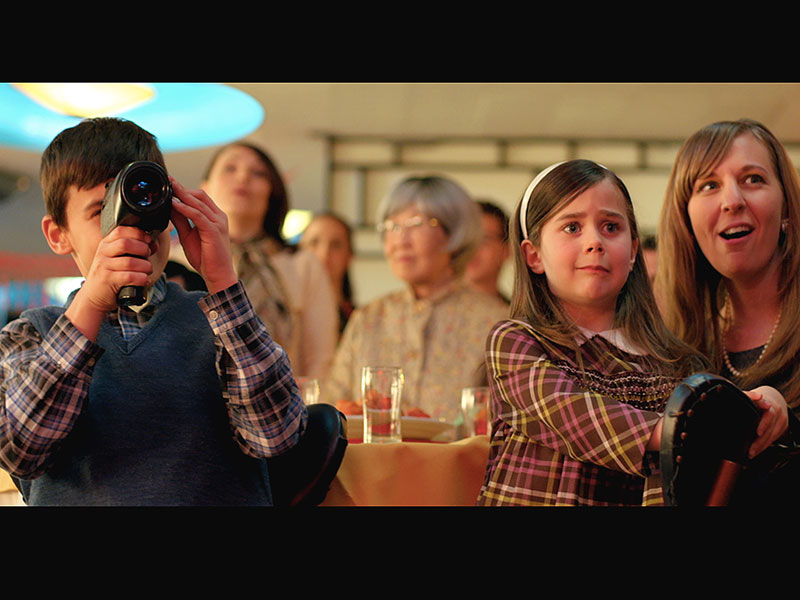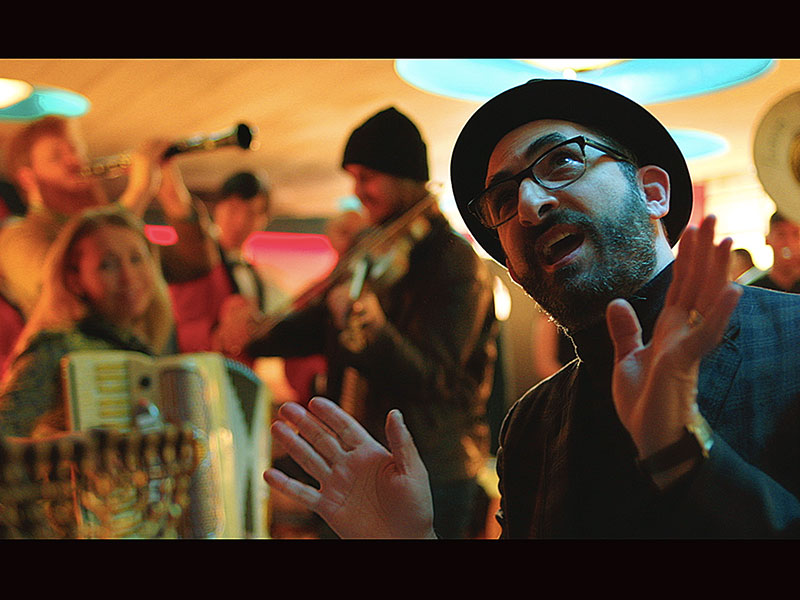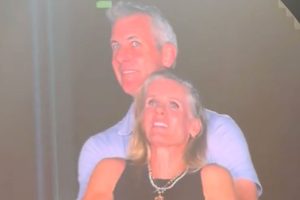Canadian documentary filmmaker Larry Weinstein has, to put it mildly, been immersed in Christmas music.
It’s not just because the holiday season is approaching and jolly seasonal tunes are blaring from shopping mall speakers. Weinstein has spent the past year working on Dreaming of a Jewish Christmas, a film that celebrates the contributions of Jewish composers to the yuletide holiday.
Among the songs examined in the film are The Christmas Song (Chestnuts Roasting on an Open Fire), which was written by Bob Wells and Mel Tormé, and Rudolph the Red-Nosed Reindeer, authored by Jewish songwriter Johnny Marks.
“The Jews who wrote this music, they totally embodied the ideals of what Christmas should be about, and it’s all about inclusiveness,” says Weinstein.
Regardless, it was a challenge for Weinstein and his crew to obtain the rights of many popular tunes penned by American Jews. That’s why Let it Snow, It’s the Most Wonderful Time of the Year and the biggest-selling single of all time, Irving Berlin’s White Christmas, are not featured. (In the doc, the latter tune is heard briefly in a clip from the 1942 film Holiday Inn, starring Bing Crosby.)
Weinstein says he was happy he could get the rights to one of his favourite holiday-themed songs, Do You Hear What I Hear? As the film recounts, that tune by Gloria Shayne Baker was a protest song first written during the Cuban Missile Crisis.
Dreaming of a Jewish Christmas is not a straightforward documentary. It combines talking-head interviews with fantastical re-creations and performances of classic songs. The singers featured in the film include Aviva Chernick, Dione Taylor and Steven Page.
The doc is scheduled to make its Toronto première at the Hot Docs Ted Rogers Cinema on Dec. 3, presented by the Toronto Jewish Film Foundation. It will also air on the Documentary Channel that evening, and on CBC on Dec. 7.
The film takes the perspective of a young boy going for Chinese food on Christmas with his sister and parents, capturing the joy and music on his Super 8mm camera. Weinstein made an effort to shoot some of these performances  with the gauzy film stock.
with the gauzy film stock.
Consequently, several of the production’s scenes were filmed inside Sea-Hi, a popular Chinese restaurant in midtown Toronto.
“When I was a little kid, it was the first Chinese restaurant my family went to,” Weinstein says. “It’s something that was always in the back of my mind when we were looking for locations.”
The director dedicated the film to his late father, Bill. Weinstein says he recently found a photograph of his father dressed up as Santa Claus – and that image closes the documentary.
“I had Christmas when I was a kid,” Weinstein says, referring to the relationship between some Jews and the holiday. “My family hung up stockings. But we never had a tree. We never acknowledged Jesus.”
Dreaming of a Jewish Christmas also explains why Chinese restaurants became such a popular destination for Jews on Christmas Day. When Jewish immigrants arrived in New York City during the early 20th century, they were considered more Asian than white, and found kindred spirits in their Chinese neighbours.
READ: A SWINGERS WEEKEND IS CHARMING AUDIENCES
Meanwhile, the composing of Christmas songs by Jews was a symbol of their will to integrate into American life. Many of the Jews who were renowned for their musical contributions in the United States, from Harold Arlen to Al Jolson, had altered their names to remove signs of their Jewishness.
Nevertheless, some aspects of Jewish identity crept into these classic songs. As some of the voices from Dreaming of a Jewish Christmas explain, the character of Rudolph the Red-Nosed Reindeer is a stand-in for Jews, who were mocked for their physical attributes, such as their noses.
Weinstein says that although the film has an American distributor, he expects the film to be received with some controversy in the United States, where some feel there is a “war on Christmas.”
“Some people have spoken against the fact that Jews cashed in on this (holiday),” Weinstein adds. “I don’t see it that way. It’s one thing getting a commission, thinking you’re going to make money off this popular holiday. It’s another thing embodying the actual spirit of something to the point that people want to sing it, want to hear it.”







